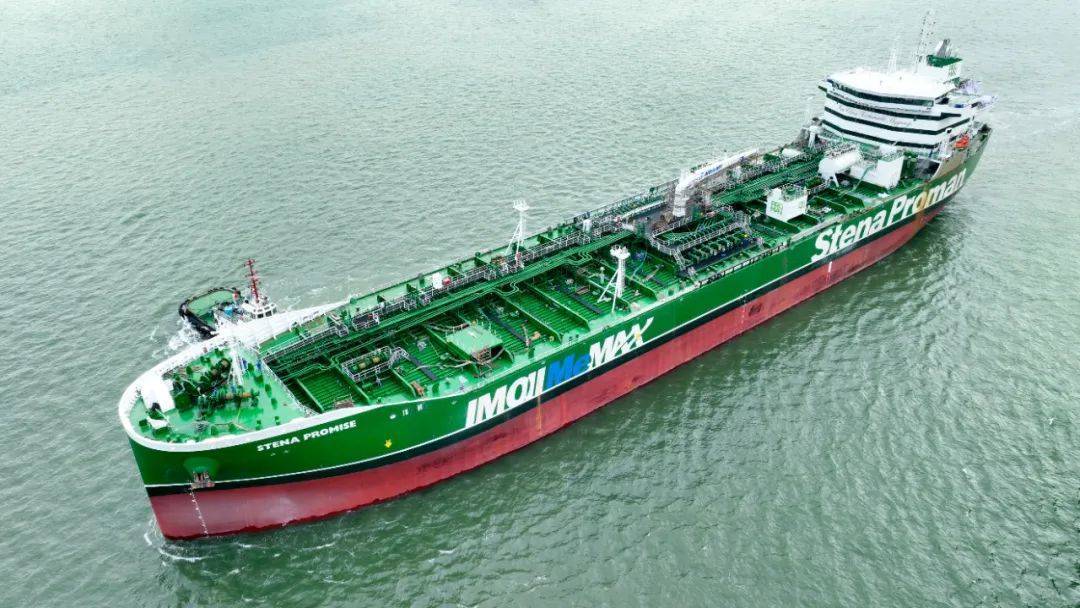Company news
Investing in dual-fuel vessels is a wise decision
Dual-fuel ships could become cheaper by 2030, according to a research report from the Maersk Mc-Kinney Moller Centre for Zero Carbon Shipping, despite the ongoing debate on whether green fuels are viable.
 When the FuelEU Maritime regulations come into force at the end of this year, investing in dual-fuel vessels will be a wise decision.
When the FuelEU Maritime regulations come into force at the end of this year, investing in dual-fuel vessels will be a wise decision.
“Dual-fuel ships offer protection against rising costs of fossil fuel shipping,” said Joe Bettles, policy analyst and co-author of the report.
FuelEU Maritime requires ships calling at European ports to reduce their greenhouse gas emissions by at least 2% by 2025. The carbon intensity can only be reduced by changing the fuel composition, that is, increasing green fuels.
This enhances the commercial value of dual-fuel vessels, which are more economical than vessels that can only run on heavy fuel, the report concludes.
Joe Bettles said: “Due to the great flexibility of dual-fuel ships, shipping companies can directly switch to green fuels when they become cost-competitive.”
The one-year study provides an overview of the interplay between investments in alternative fuels and regulations for the green transition of European shipping.
“In other words, the cost reductions of dual-fuel vessels due to EU climate regulations make the business case for using alternative fuels, while limiting the downside caused by the uncertainty of e-fuel prices and availability.”
Joe Bettles said: “Dual-fuel vessels offer flexibility and can enable shipowners and operators to reduce costs by up to 10% over the life of the vessel compared to vessels that can only run on fossil fuels.”
Dual-fuel ships are more relaxed
The study pays particular attention to operators with good business motivations.
“FuelEU Maritime can therefore incentivize companies that are willing to use green fuels only when they are cheaper,” said Joe Bettles, noting that this is the most common practice across the industry.
“The cost of sailing with fossil fuels is going up and if you have a dual-fuel vessel you can choose to switch to green fuels when they become cheaper. FuelEU Maritime has a discount for green fuels and the cost is expected to decrease as new fuels become more widely used.”
On the other hand, it means that the risk of investing in alternative fuels is passed on to fuel producers, he explained, and shipping companies can weather any supply crises simply by keeping their ships running on fossil fuels.
Clean fuels have been a hotly debated topic lately, with concerns over supply and soaring prices being particularly high.
For example, Maersk has ordered 25 green methanol dual-fuel ships, but green methanol is difficult to obtain.
Since quantities are limited and expensive, Maersk is exploring several different options to lower its carbon footprint.
Just a week ago, Ørsted announced in its quarterly report the cancellation of its hydrogen project Flagship One, which would have provided up to 50,000 tonnes of e-methanol per year to the shipping industry.
Ørsted CEO Mads Nipper explained that the project was shelved because the market for green fuels was developing more slowly than expected. He also pointed out that customers were unwilling to pay the price.
Shipyards will be busy with refits
The study also argues that EU climate regulations, including the ETS and FuelEU Maritime, are working as intended.
“We can see that policy mechanisms are promoting the development of green fuels while discouraging the use of fossil fuels.”
The rising cost of fossil fuels and the popularity of green alternative fuels mean that from 2030, it is expected that ships will be able to sail cheaper using green ammonia and methanol than using traditional fuels.
This means that ships running solely on fossil fuels will face rising costs and will no longer be a safe option.
“We see that shipyards will be even busier with converting ships. This will create a lack of capacity at shipyards and will most likely increase the cost and waiting time for dual-fuel vessels.”
“So companies that have dual-fuel vessels now are ready to switch to alternative fuels when they become competitive. We think the alternative fuel market will get tighter over time, which will give these companies an advantage.”